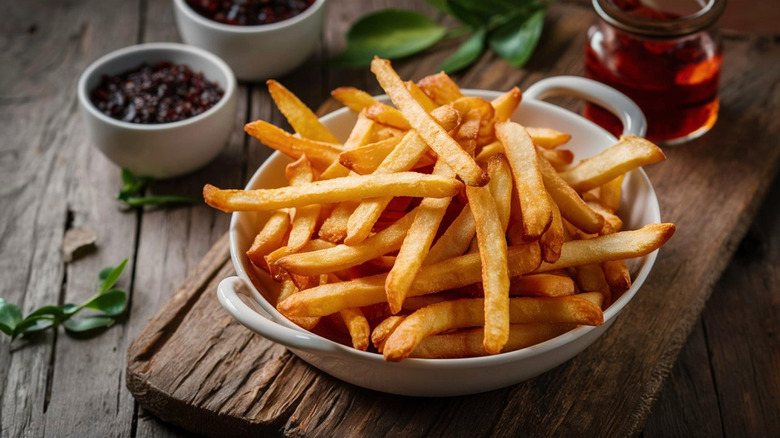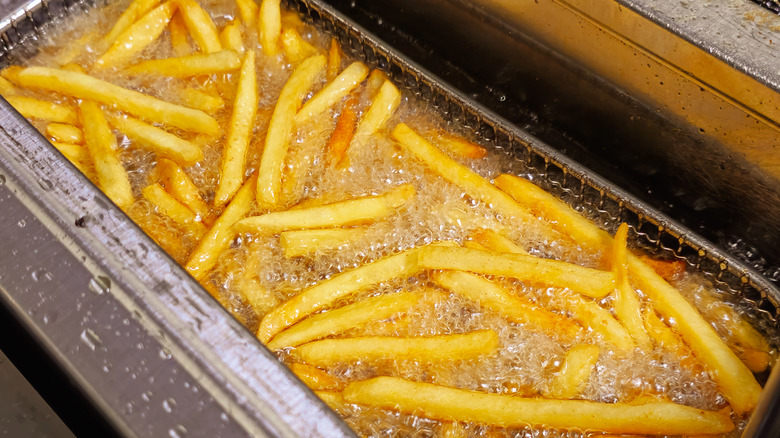The Biggest Mistake You're Making With French Fries Is Looking For A Shortcut
When making french fries, the usual shortcuts include buying frozen extra crispy fries from the grocery or using an oil-free air fryer like this Ninja. But for the real deal, looking for a shortcut will sabotage that irresistible textural contrast we love about deep-fried french fries. We've consulted Guillaume Thivet, Executive Chef at New York City's Grand Brasserie, on the quick-fix technique you should never try if you want perfectly executed french fries.
When we asked him what the biggest mistake people make with homemade french fries is, Chef Thivet responded, "Cooking all the fries at once and all the way through. You need to cook in small batches and next to cool them to get them perfectly crisp."
Overcrowding your frying pan has the same disastrous effect as overcrowding a saute pan: Soggy, water-logged food. If you throw a large batch of fries into the frying pan, you'll reduce the temperature of the oil too much, which impedes crisping and may cause the fries to stick together. Furthermore, low oil temperatures and overcrowding will result in uneven cooking, leaving you with raw or partially raw fries.
Chef Thivet also stresses the importance of cooling the fries, but this doesn't mean cooling them after they've finished frying. French fries require double frying — and sometimes triple frying– for the crispiest results. You want to cool the fries between the first and second fry so that the starch and moisture solidify on their exterior to create a crispy crust and pillowy interior.
More tips for crispy homemade fries
Chef Guillaume Thivet thinks the biggest mistake you're making occurs during the frying process, but errors can happen long before that. Oftentimes, one mistake people make when preparing homemade fries is not soaking the potatoes during the prep stage.
No matter what type of french fry you make, placing freshly cut potatoes into a cold water bath keeps them fresh and releases excess starch and sugar that hinder the crisping in the deep fryer. You can squeeze a bit of lemon juice into the water to ensure the potatoes don't brown. Russet potatoes are the best for frying; even McDonald's uses three different types of russet potatoes for its world-famous fries.
While a deep fryer is certainly helpful, you can use a Dutch oven or cast iron skillet to fry small batches of fries just as successfully. The one advantage a fry basket has is that you can shake the fries while cooking to further ensure they crisp and don't stick together. Cooling the fries between the first and second fry is crucial to crispness, but you should season them while they're hot. The hot oil on fries fresh out of the fryer will help any seasoning you have in mind stick to them. Be sure to season the fries over a paper-towel-lined plate, board, or baking sheet to absorb excess oil and catch excess seasonings.

